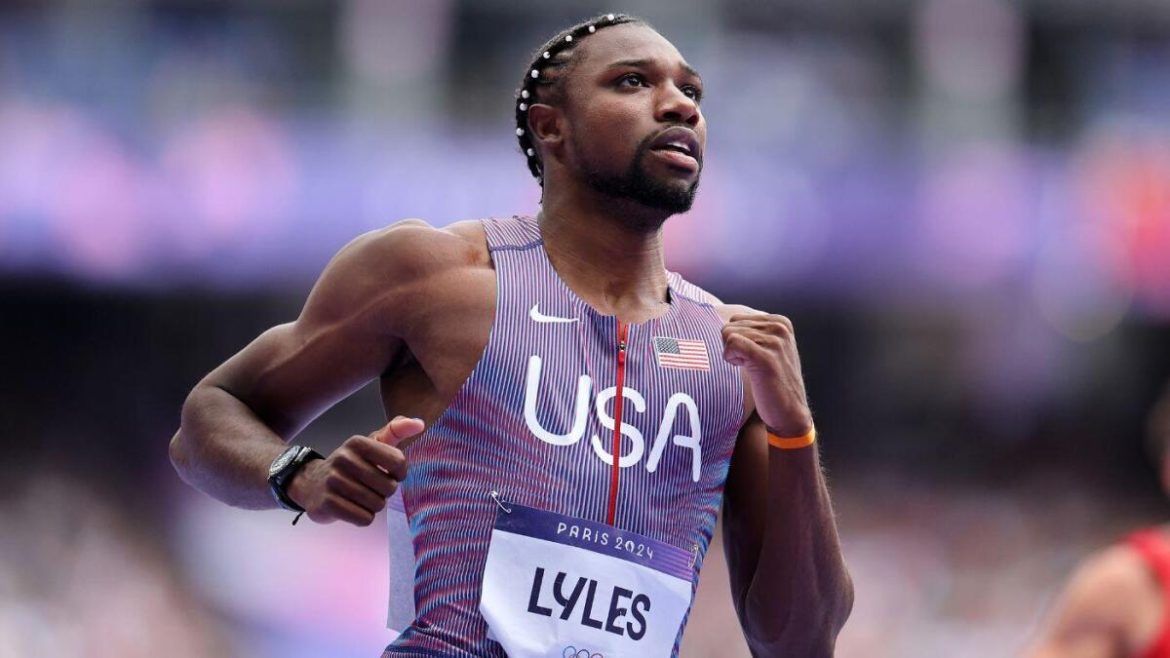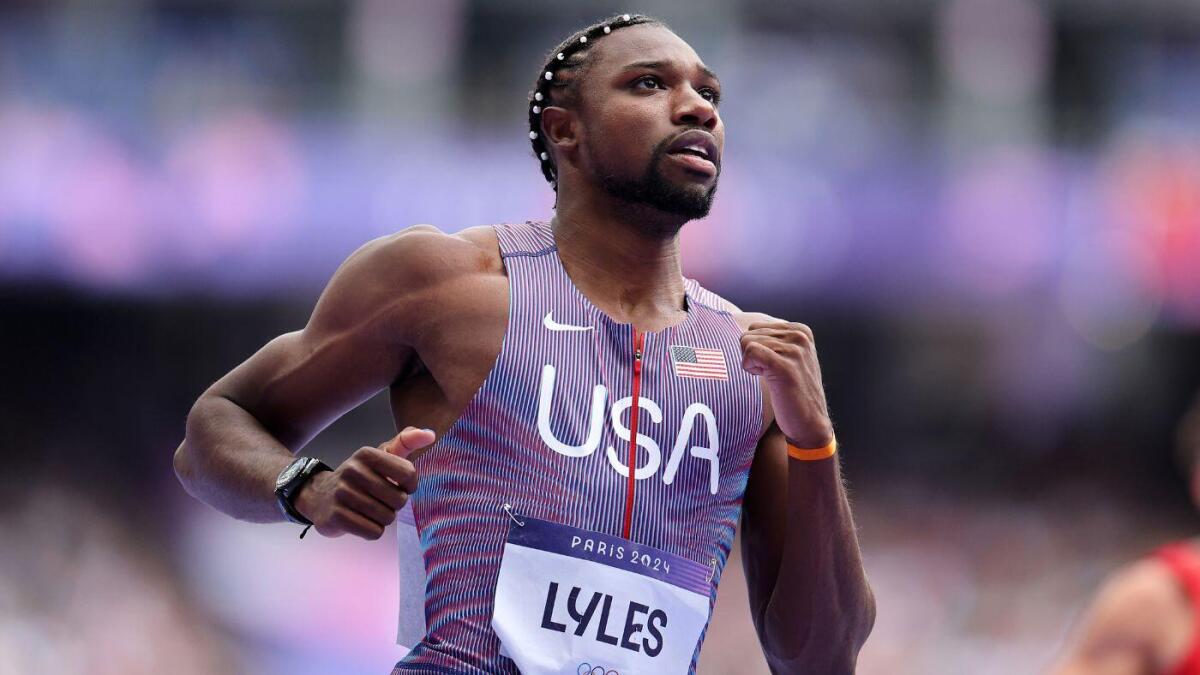The Canceled Showdown: Examining the Collapse of the Lyles-Hill Race
The highly anticipated race between Olympic gold medalist Noah Lyles and Miami Dolphins wide receiver Tyreek Hill has been officially canceled, sparking considerable discussion and even a degree of controversy. What began as a playful challenge evolved into a widely publicized event, only to fall apart due to a combination of “personal reasons” and, according to some accounts, deeper complications. This report will analyze the circumstances surrounding the cancellation, the reactions from both athletes, and the broader implications of this failed spectacle.
From Challenge to Event: The Genesis of the Race
The origins of this matchup trace back to Lyles’ stunning victory at the 2024 Paris Olympics, where he secured gold in the 100-meter dash with a personal best time of 9.79 seconds. Hill, known for his blistering speed on the football field, immediately challenged Lyles, initiating a back-and-forth that quickly captured public attention. Hill’s confidence in his own speed, honed through years of NFL play, fueled the debate: could a professional athlete specializing in football truly compete with an Olympic-level sprinter?
The proposed race distance varied, ranging from 40 to 100 meters, with initial plans suggesting a location in Times Square, and later, Miami. The event was envisioned as a unique crossover, blending the worlds of track and field and professional football, and capitalizing on the star power of both athletes. The potential for a large audience and significant media coverage was undeniable, making the cancellation all the more surprising.
The Official Explanation: “Personal Reasons” and Complications
The announcement of the cancellation came swiftly and consistently across multiple news outlets. Lyles repeatedly cited “personal reasons” and “complications” as the primary factors. He emphasized that preparations were well underway, indicating a genuine intention to compete. However, the vagueness of these explanations left room for speculation and ultimately, distrust.
Further complicating matters, reports surfaced suggesting a lack of sponsor buy-in played a role. One source indicated that securing adequate financial backing proved difficult, potentially contributing to the event’s collapse. This suggests the logistical and financial hurdles were more significant than initially acknowledged.
Hill’s Response: Skepticism and a Public Challenge
Tyreek Hill’s reaction to the cancellation was markedly different from Lyles’. He publicly expressed skepticism regarding the stated “personal reasons,” implying a lack of sincerity. Hill’s comments, delivered through various media channels, suggested he believed Lyles was hesitant to face him, potentially fearing a loss.
Hill didn’t simply accept the cancellation; he doubled down on the challenge, reiterating his confidence in his speed and willingness to race. This public back-and-forth added a layer of drama to the situation, transforming the cancellation from a simple logistical issue into a perceived display of competitive insecurity. Hill’s response fueled the narrative that Lyles was backing down from a challenge he had initially embraced.
Lyles’ Performance Context: A Champion at His Peak
It’s crucial to consider Lyles’ recent performance when evaluating the situation. His Olympic gold medal and personal best time of 9.79 seconds solidified his position as one of the world’s fastest men. He was at the peak of his athletic prowess, making a potential loss to a non-sprinter even less likely.
This context arguably strengthens Hill’s skepticism. Why would a champion sprinter, enjoying a career high, withdraw from a race against a football player, unless there were legitimate, unforeseen circumstances or a genuine fear of damaging his reputation? The timing of the cancellation, so close to the planned event date, further fueled speculation.
The Broader Implications: Crossover Events and Athlete Branding
The cancellation of the Lyles-Hill race highlights the complexities of organizing crossover events between different sports. While the potential for attracting a large audience is significant, the logistical and financial challenges can be substantial. Securing sponsorships, coordinating schedules, and ensuring fair competition require meticulous planning and a strong commitment from all parties involved.
Furthermore, the incident underscores the importance of athlete branding and public perception. Both Lyles and Hill have carefully cultivated their public images, and the cancellation has impacted both. Lyles risks appearing hesitant or lacking confidence, while Hill risks appearing overly aggressive or dismissive. Managing these perceptions will be crucial for both athletes moving forward.
The Unanswered Questions and Lingering Doubt
Despite the explanations offered, several questions remain unanswered. The specific nature of the “personal reasons” remains undisclosed, leaving room for continued speculation. The extent to which sponsor issues contributed to the cancellation is also unclear.
The public disagreement between Lyles and Hill has created a sense of lingering doubt. While Lyles maintains his reasons were legitimate, Hill’s skepticism has resonated with many fans. The incident serves as a cautionary tale about the challenges of building hype around a unique event and the importance of transparency in addressing unforeseen complications.
A Missed Opportunity and a Cautionary Tale
Ultimately, the canceled race between Noah Lyles and Tyreek Hill represents a missed opportunity to showcase the athleticism of two exceptional athletes and bridge the gap between different sporting worlds. More than just a race, it was a spectacle built on curiosity and competitive spirit. The fallout serves as a cautionary tale for future crossover events, emphasizing the need for thorough planning, transparent communication, and a shared commitment from all involved. The speed of both athletes remains undeniable, but the race itself will remain a “what if” in the annals of sports entertainment.





